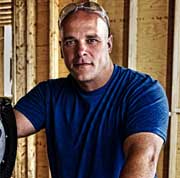Electrical wires are prone to many possible damages, especially when exposed. This is a result of mechanical and environmental factors present everywhere. The good news is, there are many ways to protect your electrical wirings against these possible damages.
One of the most popular ways of protecting electrical wires installed underground is through cable ducting. The type of electrical wire protection accessories to use depends on where the cables are installed. But this is just one of the many ways to keep your electrical wires safe. You must also consider avoiding some practices that might harm them.
How To Keep Your Electrical Wires Safe
Electrical wires might be hard to manage, especially if you don’t have enough skills and knowledge in choosing and installing the right protective accessories. If you’re trying to find ways to protect your electrical wirings at home, read this article as it lists down some of them.
Avoid Octopus Connections
There are instances when you could have plugged many devices into a single outlet or extension wire. This is called an octopus connection, which is one of the factors for housefires. It’s a dangerous practice because when excess current passes through electrical wires and exceeds its indicated rating, it will create too much heat. This can then burn electrical wirings that can start an electrical fire afterward.
By avoiding the practice of octopus connection, you get to protect your electrical wirings from overheating and prevent them from receiving more severe damages.
Use Electrical Conduit
Though electrical wires have rubber-like material insulation around them, which covers the copper inside, there are still possibilities that they can be damaged depending on their installation location. A wire with damaged insulation is the most common reason for electrical fires and electric shock. Thus, it’s essential to use an electrical conduit to prevent wires from possible damage, and a tube-like enclosure is used to protect the cables inside.
There are many types of electrical conduits. A rigid metal conduit, for example, is used to protect electrical wires installed outdoors. Wires installed outdoors are more prone to damage, making a metallic conduit the most appropriate option to use.
A PVC conduit, like surface raceways, on the other hand, is most often used to protect wires that are installed indoors. It doesn’t only improve the physical appearance of a room by hiding the wires inside, but it also protects them from twisting, bending, and other mechanical damages.
Use Braided Cable Sleeves
Another way to keep your wires safe is using braided cable sleeves. Braided sleeving is a way of protecting wires and cables from moisture, abrasions, and temperature changes. It is made of mesh material that is more flexible compared to conduits. It can be easily installed without difficulty as it can adapt to irregularly shaped or folded wires.
Add Plastic Spiral Binding
For electrical wires and cables that need to stay exposed for whatever reason, you may consider reinforcing plastic spiral binding on a group of cables to prevent it from snagging. These materials are usually made of polyethylene, one of the most common plastics today. They come in different colors and diameters and are used to protect and organize cables.
Never Place Electrical Wires Near Hot Surfaces
Extension cords and other electrical cables shouldn’t be placed near hot surfaces as too much heat may also melt the wire’s insulation. If putting it on a hot surface is unavoidable, you must consider using protective material to keep it safe from high temperatures.
Let A Professional Perform A Regular Inspection
 Whether a new or an old house, having your electrical wirings inspected by a professional will make your electrical wires safer. You can ask a local electrician in Sydney to determine if some of your wires already need replacements or not. These professionals may see problems that you alone won’t be able to identify. It’s important to let a professional perform an inspection rather than do everything on your own. It won’t hurt to spend a few more bucks on hiring a professional if it’ll prevent your electrical wirings from causing more damage in the future.
Whether a new or an old house, having your electrical wirings inspected by a professional will make your electrical wires safer. You can ask a local electrician in Sydney to determine if some of your wires already need replacements or not. These professionals may see problems that you alone won’t be able to identify. It’s important to let a professional perform an inspection rather than do everything on your own. It won’t hurt to spend a few more bucks on hiring a professional if it’ll prevent your electrical wirings from causing more damage in the future.
Final Thoughts
Many factors may affect the safety of your electrical wires. But these factors may only compromise your wire’s security if you won’t follow the abovementioned steps. Remember to always use electrical wire protection, especially for cables located in more damage-prone areas. Use protective accessories like conduits, cable sleeves, and spiral binding to keep your electrical wires from mechanical and environmental damage.
You must also keep in mind that some practices might compromise the safety of your electrical wires. Watch out for octopus connections as they may cause overheating of electrical cables. Keep your wires away from hot surfaces to prevent their insulation from melting. Lastly, having your electrical wirings inspected by a professional is suggested to ensure they’re in their best shape and still suitable for use. This way, you can ensure that you and your family are safe from unwanted fires resulting from electrical wiring negligence.











